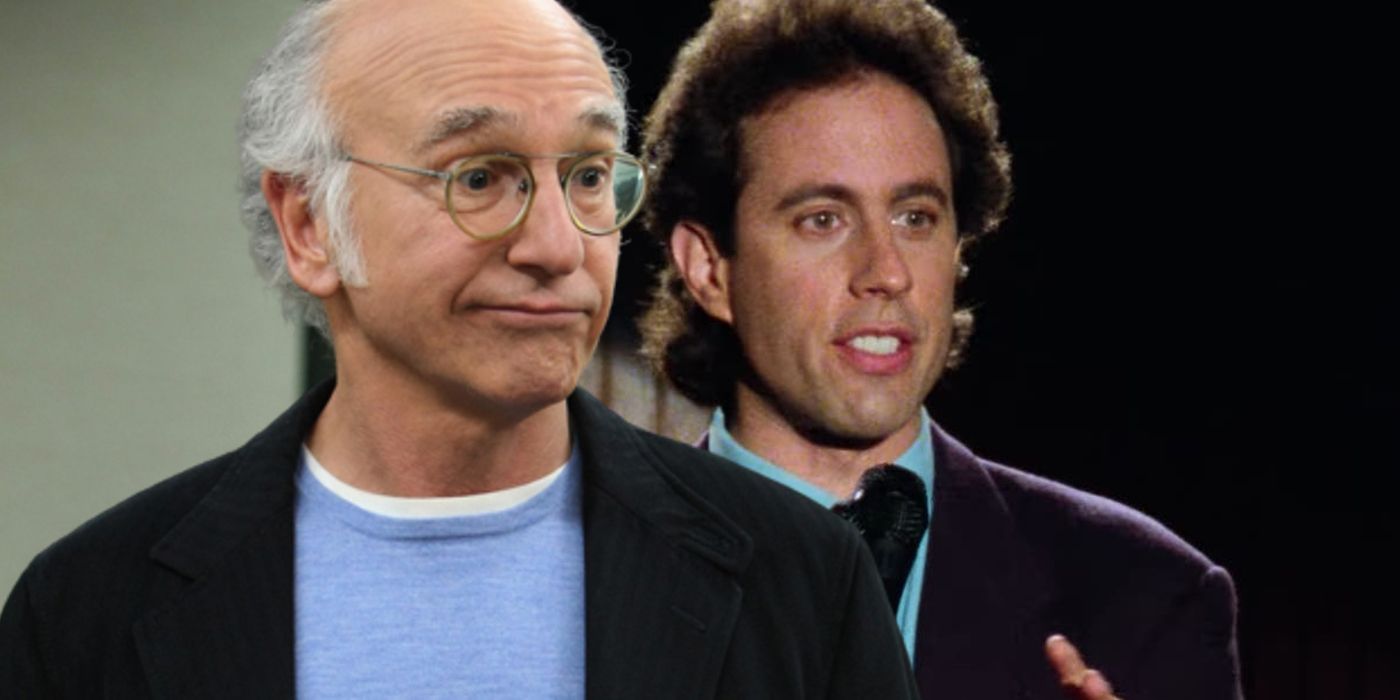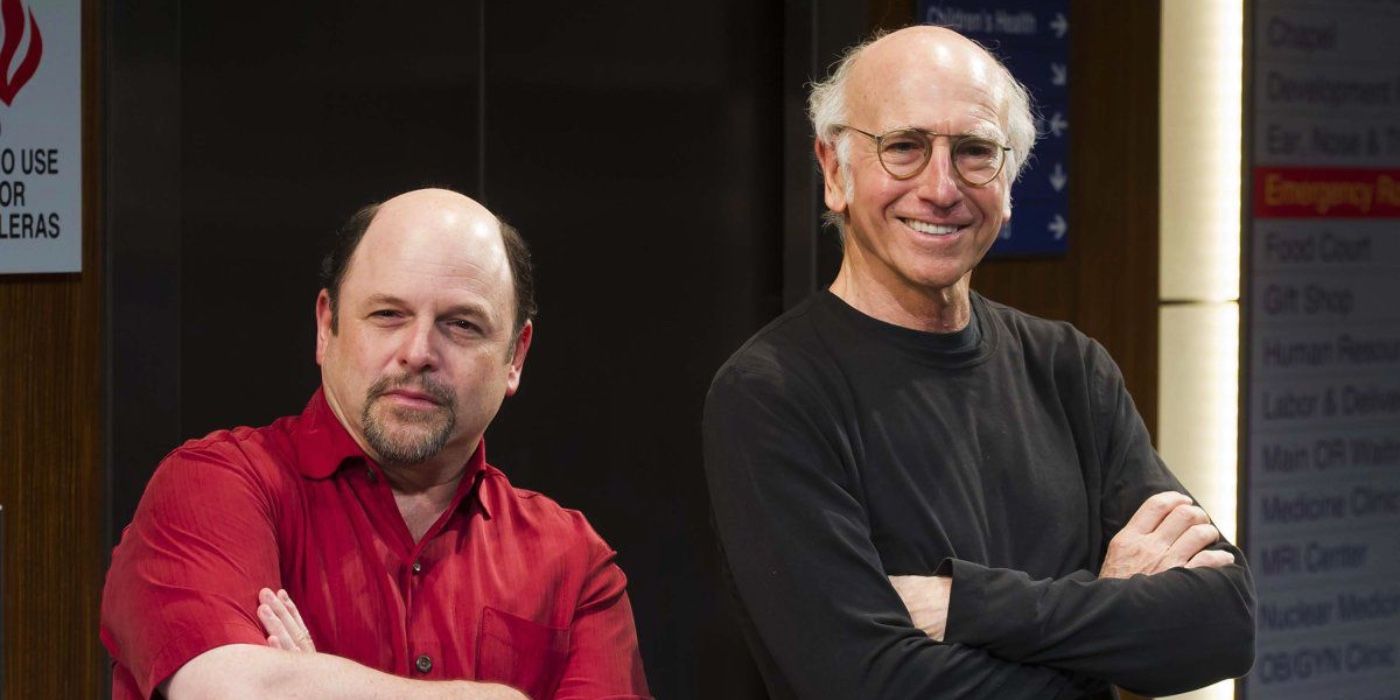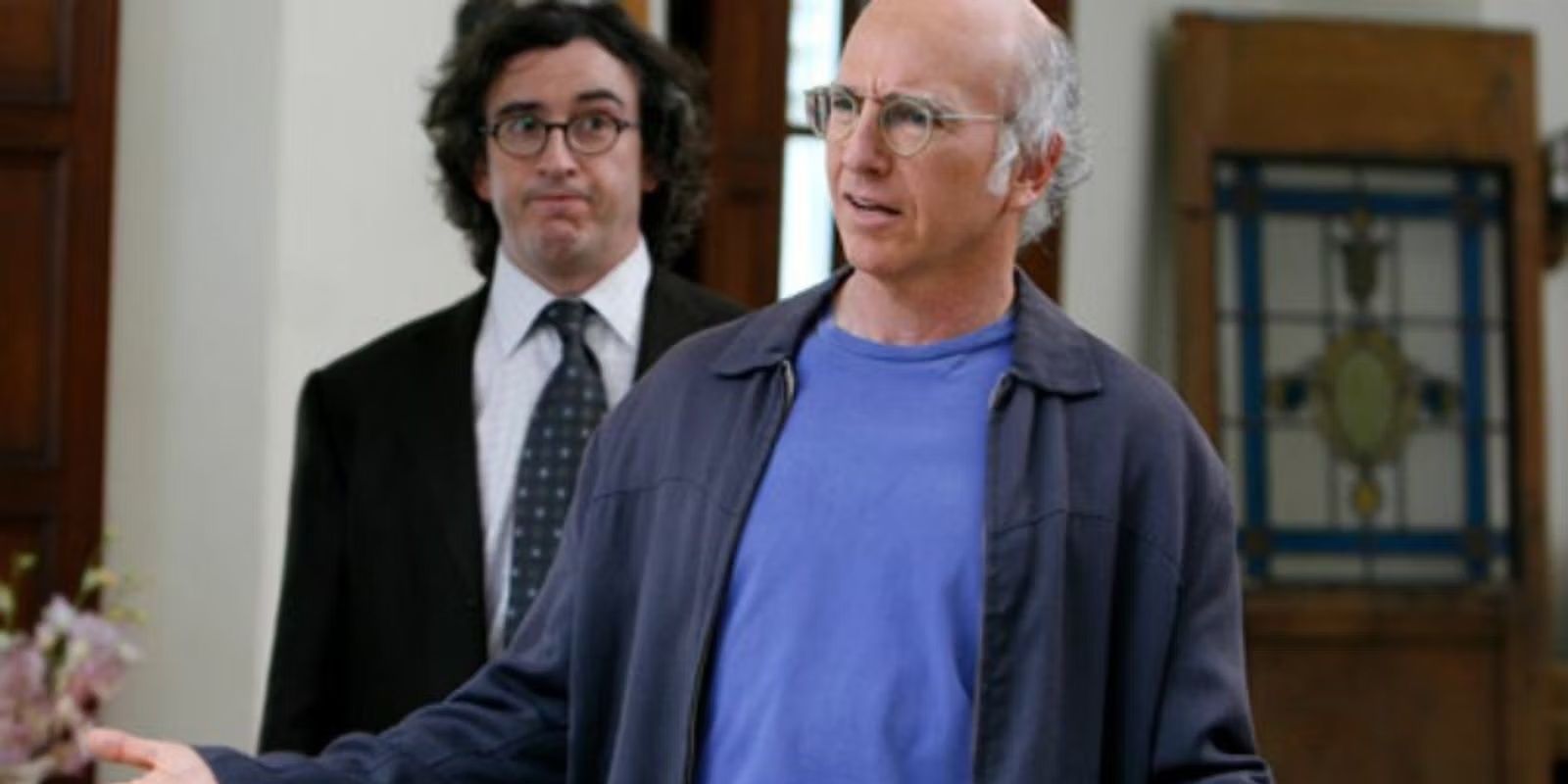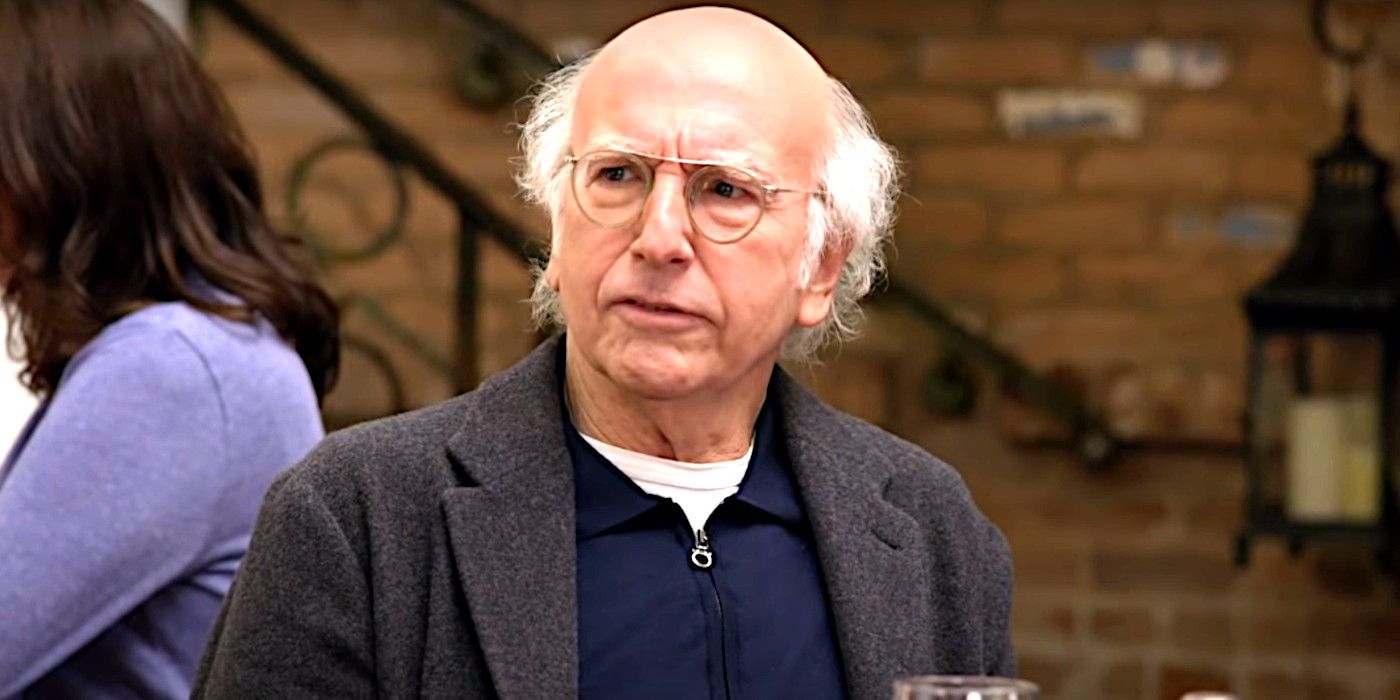Summary
- Larry David left Seinfeld after season 7 because he feared the quality of writing would decline and the pressure to produce better material became overwhelming.
- The absence of Larry David in subsequent seasons of Seinfeld led to a dip in its quality, particularly for George Costanza’s character, which David understood better than anyone.
- Larry David found Curb Your Enthusiasm less stressful than Seinfeld due to its shorter seasons, more relaxed schedule, and creative freedom, allowing him to fully embrace his comedic vision.
Given how successful the sitcom was, many fans still wonder, “Why did Larry David leave Seinfeld after season 7?” Seinfeld was conceptualized by Larry David and Jerry Seinfeld back in 1988, which they initially pitched as a show about how a comedian gets their material. While Jerry took on the face of the show, the Larry David Seinfeld role was to run it from behind the scenes, serving as head writer and executive producer throughout the show’s “golden era.” The question still remains of why did Larry David leave Seinfeld.
While the show was just as much Larry David’s as Seinfeld’s, the series took Jerry’s last name, following a semi-fictionalized version of the comedian and his friends. David’s name wasn’t in the title, but his persona persisted throughout, particularly in George Costanza. David and Jason Alexander admitted that George was primarily based on the mannerisms and experiences of Larry David, so much so that the writer was often asked why he didn’t just portray the character. Although he didn’t act out a fictionalized version of himself like Jerry, Larry David cameoed on Seinfeld both with voice work and on-screen appearances throughout the series, most notably as the voice of George Steinbrenner.
The Reason Larry David Left Seinfeld
The answer behind why did Larry David leave Seinfeld comes down to the fact that David began to feel pressure behind the scenes. Although he had extremely high faith in the series, David worried that the quality of writing would begin to decline after so many years. By the end of Seinfeld season 7, David feared that the Seinfeld writers would run out of interesting things to write about, and became stressed by the pressures to produce better material for each subsequent episode after seven years.
George Costanza actor Jason Alexander pointed out (via Uproxx) that Larry always considered Seinfeld a particularly stressful job, and that if the show failed, the responsibility would fall on him more than Jerry. There were even rumors that David threatened to quit nearly every season but would have to be talked into staying. The Larry David Seinfeld episodes were some of the most iconic of the nine seasons, so while he only stayed for the first seven, his influence never faded.
How Seinfeld Suffered After Larry David’s Exit
While the reason behind why did Larry David leave Seinfeld is understandable, the show did feel the brunt of his exit in subsequent seasons. Critics continually faulted Seinfeld for dipping in quality after David left, but nobody felt the impact of his absence more than Jason Alexander. Larry David understood George Costanza’s Seinfeld quirks better than anyone else, not surprisingly because David essentially was George, and Alexander felt that the best of George exited with the Seinfeld writer. There was no bad blood between David and Seinfeld’s cast and crew, as the once-showrunner continued to voice George Steinbrenner and returned to write for Seinfeld’s controversial season 9 finale.
Following Seinfeld’s hit run, Larry David turned to HBO where he began Curb Your Enthusiasm in 2000, a series about a semi-fictionalized version of himself after his Seinfeld fame. David’s time on Seinfeld has frequently been referenced and made into plot points throughout Curb’s 11 seasons so far, and the entire main cast of Seinfeld has appeared in several episodes.
Playing on the criticisms of the Seinfeld finale, a season 7 episode of Curb Your Enthusiasm featured a Seinfeld reunion (fictional as it was), with David writing while Jerry, Julia Louis-Dreyfus, Jason Alexander, and Michael Richards reprised their roles. Interestingly, David ended up having the same worries about Curb Your Enthusiasm as he did with Seinfeld and considered not making the ninth season because he feared the comedic storytelling would begin to decline after eight years (via THR). Thankfully, David chose to return and continue to lend his comic mastermind and storytelling edge to Curb Your Enthusiasm.
Why Larry David Found Curb Your Enthusiasm Less Stressful Than Seinfeld
Although he wound up with similar concerns, it seems that Larry David’s time writing for Curb Your Enthusiasm was, on the whole, less stressful than Seinfeld for several reasons. For one, Curb‘s average number of episodes per season was far lower than Seinfeld‘s, with David only having to worry about ten episodes per season over two decades rather than double that for Seinfeld over eight consecutive years. This more relaxed schedule is probably why Curb Your Enthusiasm season 12 is still coming even though the show began in 2000.
Related to this, NBC demanded seasons of Seinfeld back-to-back, whereas HBO has afforded David much more time in between seasons of Curb. HBO also gave the Seinfeld writer more creative freedom, which is also sure to make the gig a more satisfying one. Larry David’s comedic writing is nearly unmatched, so it’s good that he’s been able to commit more wholeheartedly to a show that makes him more comfortable.
Larry David Has Worked On Curb Your Enthusiasm For Longer Than Seinfeld
The question of why did Larry David leave Seinfeld when it was still so popular suggests that it was a mistake, but the truth is that David’s popularity on television was far from over. In fact, with Curb Your Enthusiasm now entering its 12th season, David’s time on that show has far outpaced his time on Seinfeld. The difference in the two shows helps to explain the longevity David has had on the series, but the similarities between the shows may also explain why he is willing to continue on.
Curb Your Enthusiasm feels like a natural continuation of his work on Seinfeld with several Seinfeld-like episodes of Curb Your Enthusiasm. David, along with Jerry Seinfeld, was able to take his particular sense of humor and use it to completely redefine what a sitcom could be. Having accomplished that, he was then free to take the same sense of humor to the less constrained cable networks to fully embrace that vision. With Curb Your Enthusiasm earning the same kind of acclaim as Seinfeld, it’s clear David’s humor strikes a chord with others.
This story originally appeared on Screenrant




